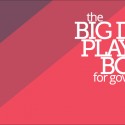As discussed yesterday in part one of this interview, there is a lot to recommend testing government agencies to glean quantifiable results or grades. Having numerical values to analyze the government’s performance allows for a better understanding of the status quo, and improved decision-making. Deloitte University Press recently authored a report entitled “Accountability Quantified: WhatRead… Read more »
Search Results for: research
Navigating the People, Process and Technology of Big Data
The following is an interview with Mark A. Johnson, Director, Public Sector Big Data Program at Oracle. To learn more about how your agency can excel with big data, be sure to check out our guide: The Big Data Playbook for Government. Although big data has the potential to radically redefine government operations, organizations still face significantRead… Read more »
WHAT’S THE GOVERNMENT’S GPA?
There’s a lot of power in being able to say exactly and numerically just how smart and successful you are. For instance, certain job applications have minimum college GPA requirements. Alternately, who hasn’t been amongst friends when the loaded discussion of SAT scores surfaces? Contentious or not, it’s important tool for professional development (and braggingRead… Read more »
Female Feds: What’s in Store for Your Financial Future?
By Abigail Reid, Writer-Editor, Federal Retirement Thrift Investment Board Recently, the Thrift Savings Plan examined gender differences in retirement saving among Federal employees. For the first time, we segmented data from our annual Participant Behavior and Demographics Report by gender, in addition to factors like age and length of tenure. Considering that March is Women’sRead… Read more »
Lack of Inclusion: Moral Failure or Moral Slumber
Most people do not wake up every day and decide not to be inclusive of each other in the workplace. If this is so then why are so many private and public sector employees disengaged. Why does every demographic group in the workplace report that they cover by not bringing their full selves to work?Read… Read more »
How OpenStack Helped Oak Ridge National Laboratory Centralize Workloads
The below is an excerpt from GovLoop’s latest industry perspective on open source. To read the full thing, head here. Much has been made of how cloud computing cuts IT costs, helps systems operate more efficiently, and increases agility. But what about its role in scientific efforts? Can the cloud help scientists and researchers? RecentRead… Read more »
Does the President’s Budget Matter for States?
On February 2nd, the President unveiled his new $4 trillion proposed budget for FY 2016. Obviously the federal government was paying close attention, but state and local governments were also on high alert. The reason? Simple: the President’s budget also provides funding to states and localities in several different areas like transportation, education and infrastructure.Read… Read more »
The Tech Loop
The Tech Loop is a weekly compilation of the latest happenings in government technology gathered from around the web. This week’s topics include cybersecurity, Internet of Things, net neutrality, and cloud. Cybersecurity Per usual, cybersecurity is the talk of the town at all levels of government. The White House is officially launching its cyber agency,Read… Read more »
Is Big Data the Same as Dirty Data?
Conversations on Big Data is a series of discussions about using analytics in creative and interesting ways that the Partnership for Public Service and the IBM Center for The Business of Government designed to broaden the perspective about quantitative analytics. Wikipedia defines Big Data as “…an all-encompassing term for any collection of data sets soRead… Read more »
Public-Private Partnerships: Why Isn’t the U.S. More Experienced With Them?
Public Private Partnerships are a reliable method of conducting various types of business on the local, state, and federal levels. Also known as PPPs, 3Ps, or P3s these types of models allow the public and private sectors to apply the strengths and resources of each sector. P3s may be more difficult to execute than otherRead… Read more »










